President Harrison Strengthens CSUN’s Ties to China
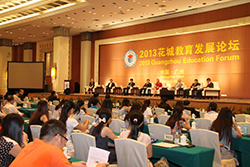
President Harrison served as the chair of the first roundtable discussion of the 2013 Guangzhou Education Forum, “The Strategy of Higher Education Internationalization.”
California State University, Northridge’s President Dianne F. Harrison visited China this fall, strengthening the university’s international reach and expanding educational and research opportunities for students and faculty.
During her nine-day trip in September, Harrison had formal meetings with presidents and vice presidents from 10 Chinese universities, visited seven partner universities, renewed three memoranda of understanding and met with educational and business leaders in five cities — Shanghai, Suzhou, Nanjing, Guangzhou and Wuhan. A highlight of the trip was Harrison speaking on behalf of more than 20 international university presidents at the high-profile 60th anniversary celebration at Nanjing University of Science and Technology (NUST). She also shared the presentations of the winners of the 2013 U.S.-China Space Science Education Project to the president of NUST. The project is a collaborative effort between CSUN and NUST in which the winners’ experiments will be in the running to be conducted in a Chinese space shuttle or space station.
“This trip served as an opportunity to deepen our collaborations with Chinese academic and business leaders, as well as reach out to our alumni network,” Harrison said. “The university’s strong bonds with China provide diverse learning and research opportunities for our faculty, staff and students.”
As a result of her visit, China’s Olympic Gold Medalist Jingyu Wu is scheduled to study at CSUN in January 2014. Ambassador Jian Liu, the new Chinese consul-general in Los Angeles, will visit CSUN on Dec. 11.
Cal State Northridge has a long history of collaboration with China. CSUN was one of the first American universities to pursue educational and cultural exchanges with Chinese universities when the late-President James Cleary signed CSUN’s first foreign student exchange agreement in 1981.
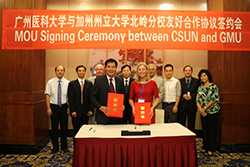
President Harrison is pictured with representatives from Guangzhou Medical University at the MOU signing ceremony.
Today, CSUN has agreements and letters of intent with nearly 50 universities in China. These agreements have helped to promote the academic and cultural exchange of faculty and students through joint teaching, research, creative projects, visiting professor opportunities and other projects. Hundreds of visiting scholars and thousands of students from China have studied at CSUN, and many CSUN faculty and students have participated in exchange programs.
The Chronicle of Higher Education’s 2013 Almanac of Higher Education lists CSUN as No. 1 in master’s degrees granted to international students during the 2011-12 academic year. CSUN has been among the top 10 universities listed for at least a decade. CSUN officials say this is true in part because of the university’s relationship with Chinese universities.
In addition, as a result of the president’s trip, a CSUN alumni network in China has been created — making Cal State Northridge one of only a handful of CSUs with alumni networks in that country.
“California has some of the best universities in the world, and CSUN has strong fields of study in many areas, which are outstanding in the world,” said CSUN alumnus Wei Xiao, professor of math at NUST, one of dozens of alumni in China who greeted Harrison during her visit. “I chose to study at CSUN because I wanted to establish exchange and communication with famous scholars and to experience firsthand the scientific research, teaching and study atmosphere in American universities.”
Xiao, who studied math as a student at CSUN in 2012, has agreed to connect CSUN alumni in Nanjing. He and a delegation of about 20 other CSUN alumni presented Harrison with a welcome plaque and photos of Nanjing scholars at CSUN in the 1990s.
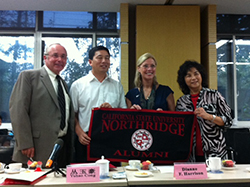
President Harrison hosted the first “Tea Reception for CSUN Alumni in Shanghai” (and in China) at Shanghai Normal University.
Shanghai Normal University (SHNU) Vice President Yuhao Cong, also a CSUN alumnus, hosted a tea reception for CSUN alumni to welcome Harrison to Shanghai. He is among dozens SNHU officials, including two vice presidents, 12 deans/directors and associate deans/deputy directors, who are alumni of CSUN.
Cong said that when he studied at CSUN as a visiting scholar in 2004, he learned much from the theories and operations of American higher education administration, which contributed to his growth as a university administrator in China. Shortly after he studied at CSUN, he was promoted to vice president at SHNU. He will work with other CSUN alumni in Shanghai who want to connect with one another.
“President Harrison’s short but extremely productive visit to China has greatly enhanced all the academic values guiding CSUN’s international programs and relationships and has built a strong reputation and influence of CSUN in China and in the international education community,” said Justine Su, professor of educational leadership and director of CSUN’s China Institute. “The visit resulted in many ideas for further planning and implementation in our collaboration and exchange programs with Chinese partner institutions and commissions.”

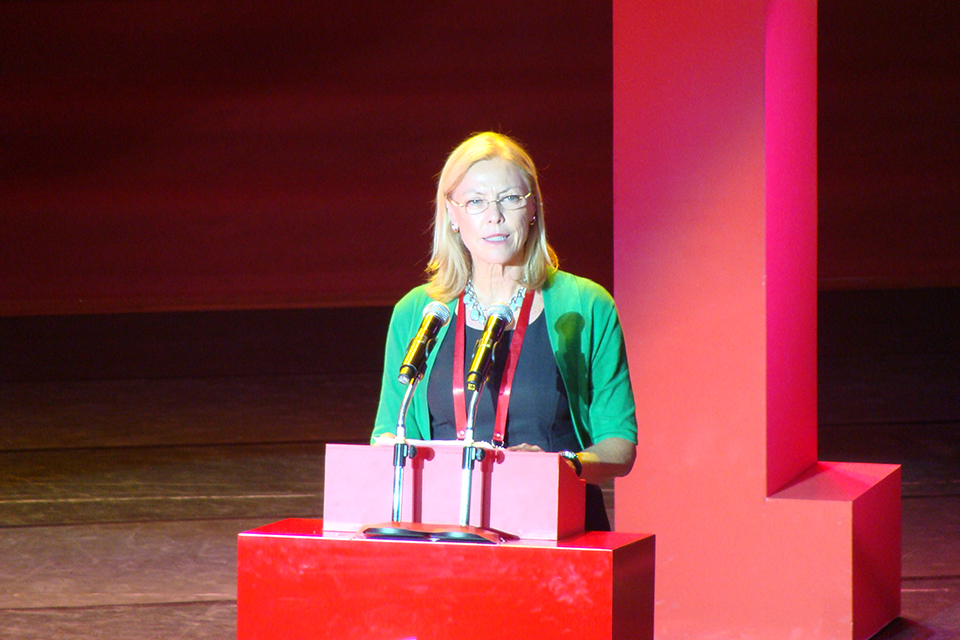
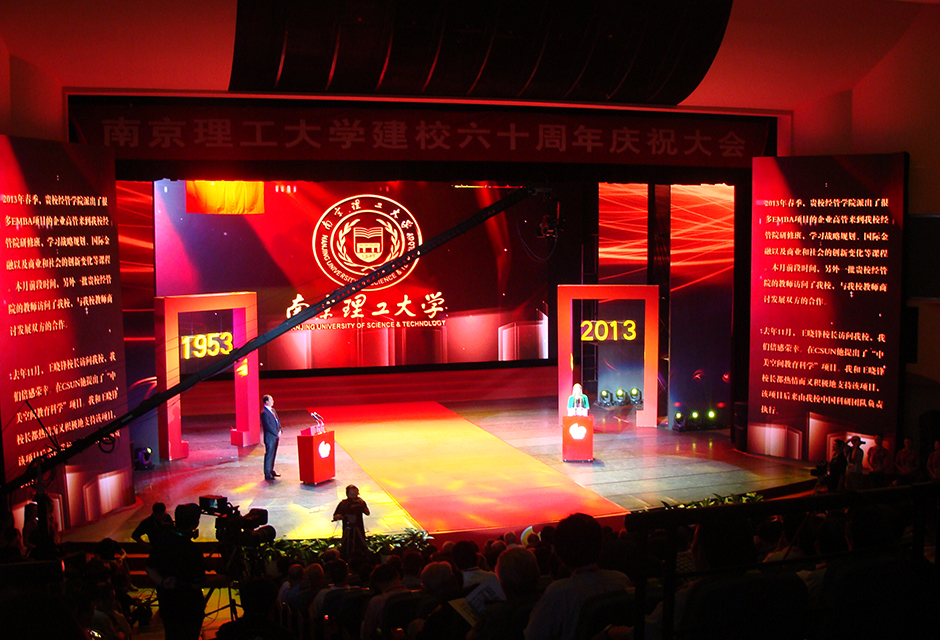
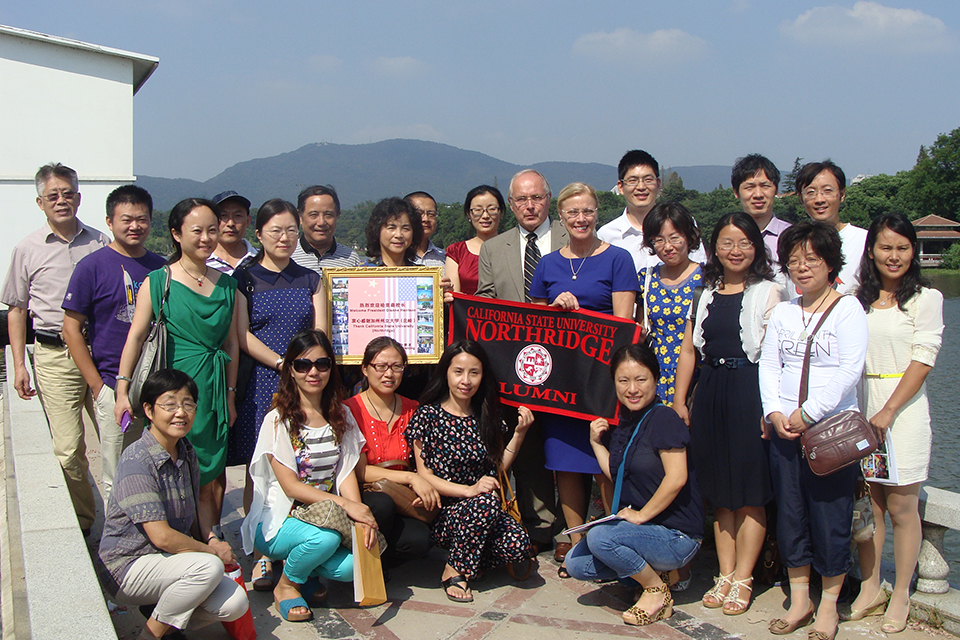
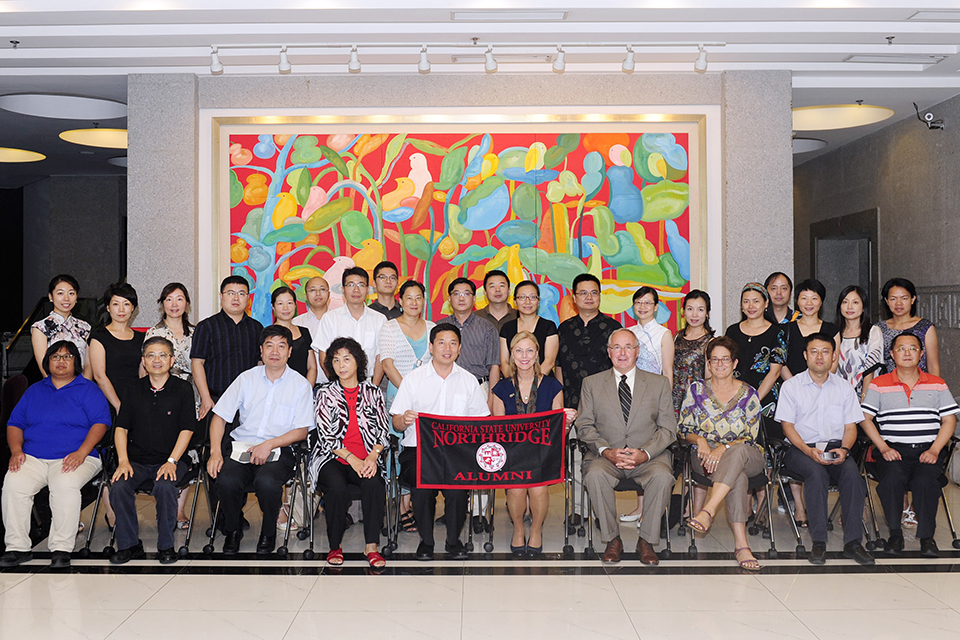
 experience
experience